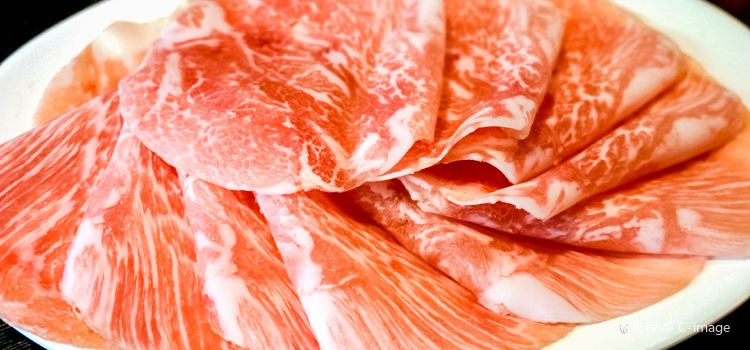TAIHEDIAN RESTAURANT
4.4/5112 Reviews
World Trade Center Exhibition CenterAU$38
Reason:A culinary gem, its spicy hotpot is simply irresistible

Open Now|12:00-00:00
+886227050909
What travelers say:

Malatang originated in Niuhua Town, Leshan City, Sichuan Province, on the bank of the Minjiang River. It was originally the boatmen and trackers who created Malatang, a simple, easy and unique way of eating. From Chengdu to the Three Gorges, the Sichuan River Basin, due to the rapid flow of the water, trackers have become an indispensable landscape. In addition to pulling the boats, they piled up stones and set up earthenware jars on the riverside, picked up some branches as dry firewood for fire, and scooped a few buckets of river water. Everything was made from local materials. If there were vegetables, they would put them in. If there were no vegetables, they would pick some wild vegetables to make up the number, and then add sea pepper, Sichuan pepper and other seasonings, and eat it after rinsing. It can not only fill the stomach, but also drive away the cold and dampness.
More
Reviews of TAIHEDIAN RESTAURANT
Some reviews may have been translated by Google Translate
4.4/5Excellent
All (112)
Latest
Photo reviews (12)
Positive reviews (21)
Malatang originated in Niuhua Town, Leshan City, Sichuan Province, on the bank of the Minjiang River. It was originally the boatmen and trackers who created Malatang, a simple, easy and unique way of eating. From Chengdu to the Three Gorges, the Sichuan River Basin, due to the rapid flow of the water, trackers have become an indispensable landscape. In addition to pulling the boats, they piled up stones and set up earthenware jars on the riverside, picked up some branches as dry firewood for fire, and scooped a few buckets of river water. Everything was made from local materials. If there were vegetables, they would put them in. If there were no vegetables, they would pick some wild vegetables to make up the number, and then add sea pepper, Sichuan pepper and other seasonings, and eat it after rinsing. It can not only fill the stomach, but also drive away the cold and dampness.
In business for over 20 years Taihedian Spicy Hot Pot on Section 4 of Xinyi Road Taking the exquisite and high-price route Dining at Taihe Hall is a la carte Then the pot fee will be charged based on the number of people. All other ingredients are a la carte Duck blood tofu at the bottom of the pot Unlimited enjoyment Also available for takeaway The whole pot is full of spicy aroma. Numb but not spicy The aroma of star anise, a Chinese herbal medicine, is very rich and layered. Just see a layer of red oil floating on it It's enough to make people unable to bear it Duck blood sucked up the spicy soup The taste is soft, tender and smooth, and the soup will squirt out So delicious Beef at Taihe Temple Belongs to the upper class Put it into the pot and cook it for a while It’s the best time to enter mid to high price Quality and ingredients exceed expectations Worth recommending ~
I have to recommend this restaurant. The double-flavor hotpot is suitable for people who like spicy food and those who can't. This is better. I recommend the squid balls, which taste great and can be eaten directly. The marinade is also good.
I heard that Lao Liu was also looking for a hot pot restaurant to eat at, so of course I had to try it. The store is relatively small, so it is best to make a reservation in advance. It is located about 5 minutes from Exit 5 of Xinyi Anhe MRT Station, turn left and go straight. The spicy hot pot here has basically no seasoning. The store recommends ordering green onions with two spoons of spicy soup. I tried it and it tasted really good, but the main advantage is that the ingredients are fresh and it will not taste bad no matter how you cook it.
This Taipei main store is located at the intersection of Xinyi Road and Guangfu South Road. It is said to be Aaron Kwok's favorite store. The restaurant takes a boutique route and only has private rooms, which is very design-like. The hotpot restaurant will suggest that the soup should be slightly spicy and the soup should be slightly salty. If you don’t like spicy food, you can choose the mandarin duck pot. The white pot is cooked with pork bones. After putting in the seafood and vegetables, it is quite sweet and delicious. Not only are the ingredients exquisite and fresh, but the price is also very expensive. It is undeniable that the taste is indeed outstanding and delicious. Of course, if you have a bulging wallet, I recommend giving it a try. It’s a good experience. Featured recommendations: fried dough sticks, large intestines, fat beef and frosty beef, pot tofu, handmade Sichuan meatballs. Very worth recommending to everyone.
Before departure, I had already booked a room at the Hall of Supreme Harmony to eat Yuanyang hotpot. There seem to be two in Taipei, which opened in the 1990s and are said to be doing good business. I heard that there are also two branches in Shanghai, but I have never thought of going to see them. It seems that the average price per person is 500 or 600 yuan, and it is said that the beef is air-shipped. This one on Xinyi Road has good market and parking is OK. The store along the road mainly has small tables. Going to the back of the house, there are other storefronts, all of which are private rooms, with large and small packages. I ordered the signature Yuanyang spicy hotpot. The clear soup has less ingredients, and the red soup contains duck blood, tofu, large intestine, etc. When refilling the soup, duck blood and tofu are added for free, in large chunks. At first, I took a drink from the refrigerator to try. There are many kinds of drinks in the refrigerator, so I took them myself. Anyway, I would order the remaining amount in the refrigerator to settle the bill at the end. Later, after the red soup base was added twice, the spicy and salty taste was concentrated, and I could only drink beer to feel refreshed. I asked the waiter to add a box of beer because beer tastes light. Later, no one touched the red soup, and everyone ate it in the clear soup. The tripe and shrimp balls were delicious. There was a minimum consumption for the private room, and a 10% service charge. The waiters were mostly middle-aged aunts, and their attitude was neither cold nor warm, but they did their job. After paying AA, the average per person was more than RMB 260, which was much more friendly than the two restaurants in Shanghai.